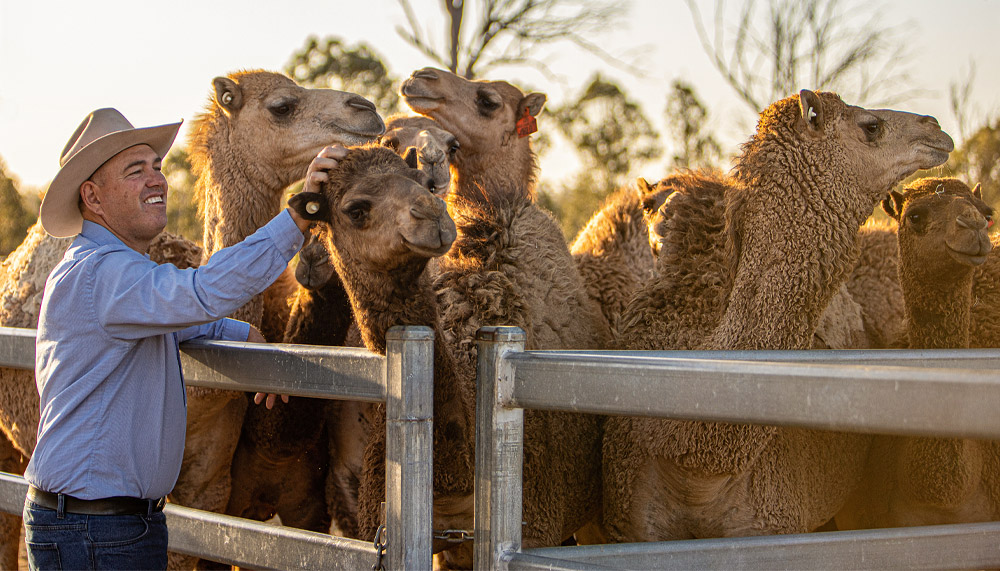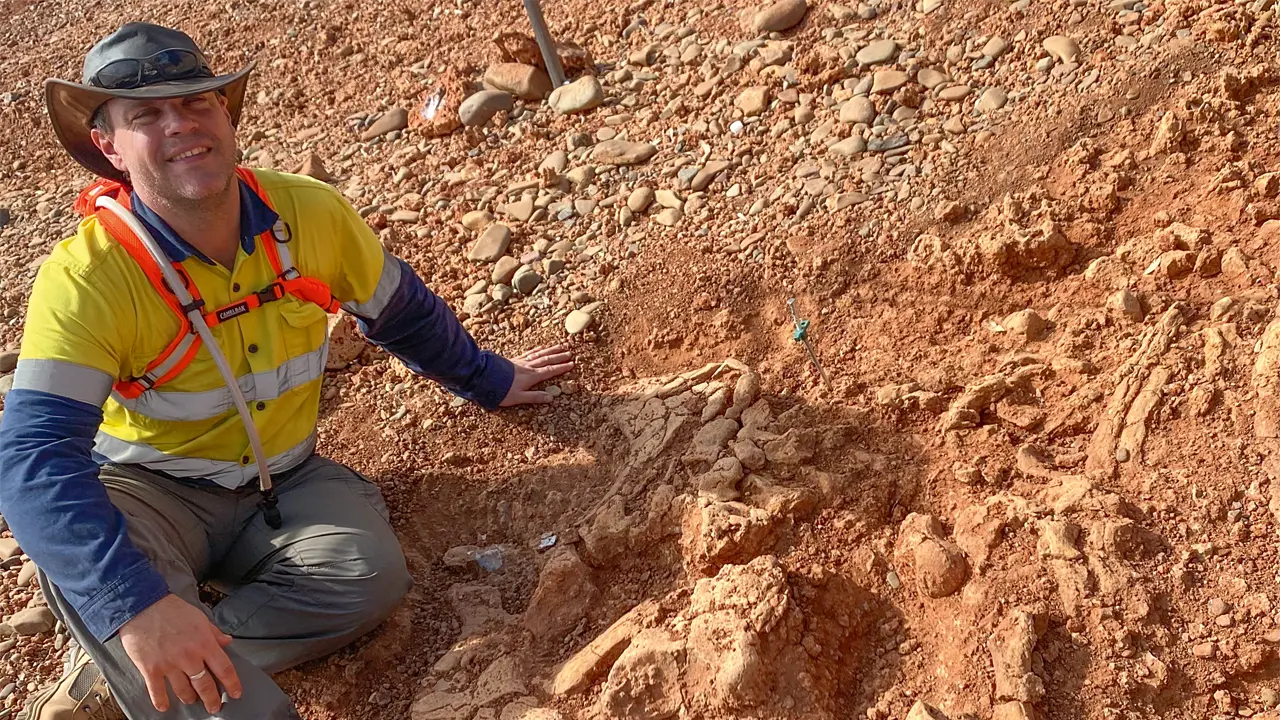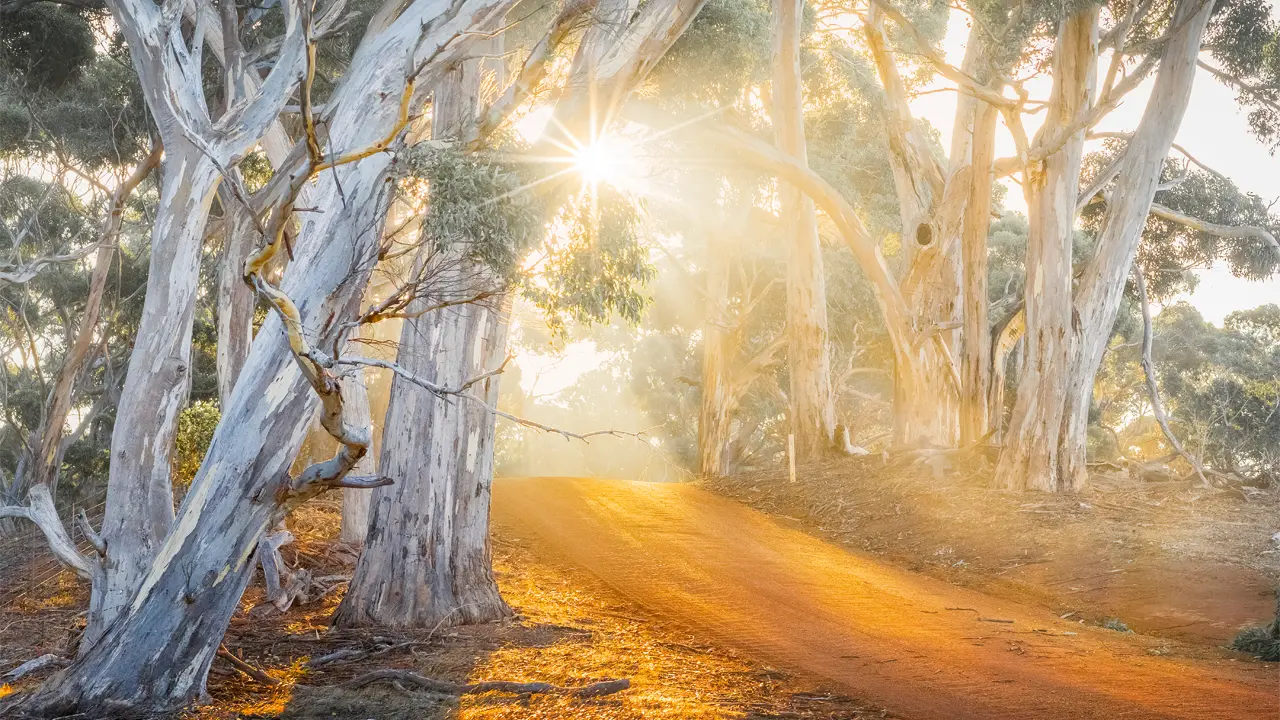A love of the land, a belief in misunderstood animals, and a passion for human health all play a role in pushing Paul Martin closer to achieving his dream of turning his camel farm into a burgeoning agricultural industry.
Story Jade Toomey Photos Mark Swadling
When Paul Martin forgets to bring his lunch to work, he pokes his head into the Homestead Cafe and weighs up his usual choices: a camel burger or a camel pie? A pristine 1930s Hamptons-style build, the bustling cafe is nestled among the foothills of Queensland’s Scenic Rim. It’s the social hub of Summer Land Camels, the camel farm Paul started in 2014. Two of Paul’s children, Jonty and Arabella, serve their dad and the dozens of daily visitors anything from camel haloumi to camel gelato, along with the cafe’s famous camel-chino, in true paddock-to-plate style.
Paul’s day starts well before the cafe opens its doors. It begins at the family home in Brisbane’s west at around 4am, when he does the rounds dropping the youngest of his four children to various before-school activities. “It certainly suits me,” Paul says. “The eldest three have a lot to do with the farm. Number four, Benjy, is still very much playing football.” Paul is an early riser by nature, making sure the 45-minute trip down the Cunningham Highway gets him to Summer Land before the camels’ morning milking.
“Our camels will drop their milk in around a minute and a half,” Paul says. Most days, Summer Land’s camels produce about 6.5L of milk over two sittings, with the exception of one star performer who tends to produce nearly double that. “We do a row of 10 at a time, so you’re looking at 10–15 minutes for every 10 camels,” Paul says.
Nearly half of the 800-strong herd are trained to go through the dairy using a set-up similar to the herringbone system common to most cow dairies.
This story excerpt is from Issue #134
Outback Magazine: Dec/Jan 2021










